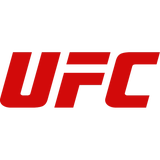
Think Mayweather-McGregor is a freak show? How about these?
LAS VEGAS (AP) -- It may not be the fight of the century, but it could be the event of at least the last few years.
The spectacle that is Floyd Mayweather Jr. and Conor McGregor will almost surely live in sports lore for reasons other than what happens in the ring. The two will add their names to some one-off events that have fascinated sports fans and others, even if the actual competition didn't live up to the hype.
Ali-Frazier it's not. Ali-Inoki, well, now we're getting warmer.
Remember some of these not-so-epic but massively hyped events?
ALI-INOKI: The original mixed combat sports event, and likely the reason there haven't been any since. Muhammad Ali was looking for a payday in 1976 when he agreed to meet professional wrestler Antonio Inoki in a 15-round match in Tokyo. Promoter Bob Arum wanted to make sure Ali won and went to wrestling promoter Vince McMahon to figure out a script for the fight, which was shown on closed circuit in the U.S. The plan was for Ali to catch Inoki on the ropes and Inoki to have a hidden razor in his mouth to cut himself so there was real blood. Ali would then beg the referee to stop the fight. The problem was Inoki thought he was in a real fight and when the opening bell rang he raced across the ring and threw a kick at Ali. Inoki spent much of the fight in a crablike position on the canvas, kicking at Ali's legs, badly bruising them. While Inoki wasn't in on the plan, the referee was and he gave the decision to Ali. "It was the low point of my career," Arum said. "It was so embarrassing, just a total farce."
KING-RIGGS: Bobby Riggs was a 55-year-old tennis hustler when he talked his way into a "Battle of the Sexes" match with Billie Jean King in 1973 at the Astrodome. At the time the women's liberation movement was flourishing and America was fascinated with the idea a woman could play competitively against a man on the tennis court. Riggs, who trained on vitamins and avocados, declared it the "greatest hustle of all time" and promoted the match while wearing a T-shirt with the acronym WORMS -- the World Organization for the Retention of Male Supremacy. More than 30,000 paid their way into the Astrodome, where courtside seats were an astronomical $100, and Howard Cosell was in a tuxedo at courtside for the ABC telecast. King came through on behalf of women everywhere by beating Riggs 6-4, 6-3, 6-3. "Billy Jean King Outlibs the Lip," read the next day's Daily News headline.
KNIEVEL-CANYON: Evel Knievel was a daredevil in search of a big payday when he came up with the idea of jumping the Snake River Canyon in Idaho on a specially modified rocket. Promoters claimed up to 200,000 people would be on hand to watch, and that 2 million more would pay $10 to sit in theaters across the country to watch Knievel either soar over the canyon or die trying. The day before the jump the crowd -- which was estimated at 15,000 -- became unruly when the price of beer was raised, and looted the stands and charged television trucks. When Knievel finally blasted off he didn't make it too far as his parachute deployed and his jet-powered "motorcycle" ended up stuck on a ledge on the side of the cliff.
OWENS-HORSE: It was 1936 and Jesse Owens had upstaged Adolph Hitler in winning four gold medals in Berlin. But there was no real way to make money in track and field, and a black man during those times wasn't going to get endorsements. Owens decided to go the freak show route by racing a horse. "People said it was degrading for an Olympic champion to run against a horse," Owens said, "but what was I supposed to do? I had four gold medals, but you can't eat four gold medals." The race took place the day after Christmas in Havana between halves of a football game, with the horse getting a 40-yard handicap. Owens would win the race, and many more against horses as he tried to make a living off his speed over the next decade.
ALI-CHAMBERLAIN: This is one freak show that didn't happen, though it came close. Wilt Chamberlain was 35 and a year away from retiring in 1971 when Ali began campaigning for a fight with the 7-foot-1, 275 pound basketball player. Chamberlain didn't think he could beat Ali in a boxing match, but figured he, like McGregor, could land one big punch to win. The two agreed to the fight and on the day of the press conference to announce it, Ali yelled "Timber!" when Chamberlain walked in. Chamberlain immediately went into the net room with his lawyer only to come out and say he wasn't going to fight. Ali's business manager, Gene Kilroy, said he convinced Chamberlain he didn't have a chance. "I told him, `It would be like Ali playing basketball against you,'" Kilroy said.
